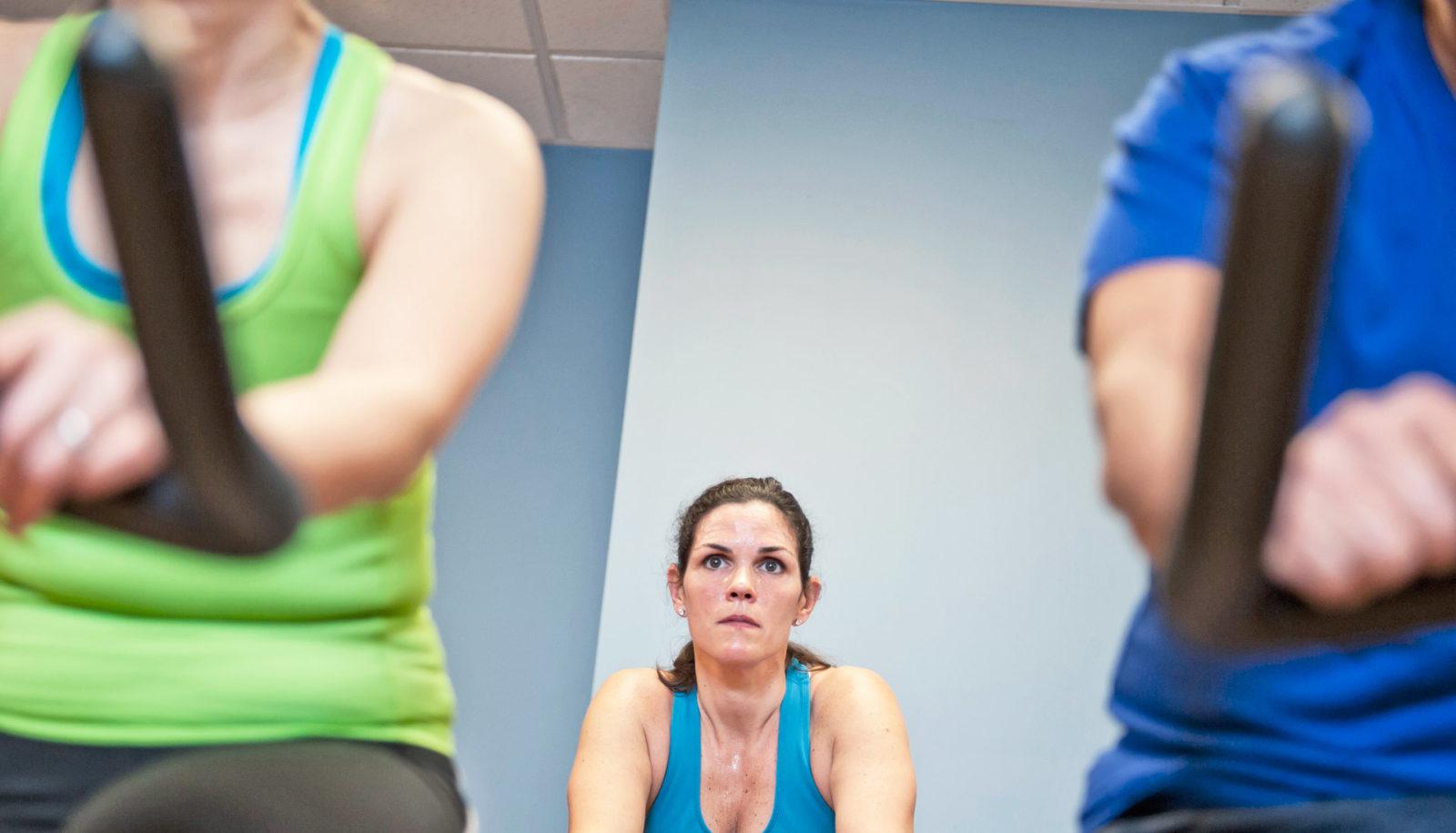Exercise class boosts quality of life after cancer

Community-based exercise programs improve physical fitness and quality of life for people with cancer, according to a new study.
Experts recommend exercise for cancer survivors to reduce the side effects of treatments and improve overall well-being.
“Having an evidence base for cancer exercise programming instills confidence in survivors and health care providers that these programs are effective and safe,” says lead author Rita Musanti, an assistant professor of oncology nursing at Rutgers School of Nursing and a research member of Rutgers Cancer Institute of New Jersey.
“It also provides researchers with evidence-based programming, so more targeted exercise options can be offered to survivors.”
For the study, which appears in the Journal of Advanced Practitioner in Oncology, researchers analyzed fitness data from the start and the end of a 12-week Livestrong program at YMCA sites in New Jersey and Pennsylvania. They looked at cardiopulmonary, muscular strength, flexibility, balance, and self-reported quality of life outcomes, including anxiety, depression, fatigue, and pain.
Of the 88 participants, a majority had completed treatment within the past two years, were female, and were breast cancer survivors.
Notably, 67 percent reported having peripheral neuropathy, a form of nerve damage that can result from chemotherapy that causes weakness, numbness, and pain in the hands and feet. It can also cause problems with balance and mobility, which puts people at a greater risk for falls.
With the exception of heart rate and left-sided balance in men—which did not change—the study found that exercise significantly improved the participants’ quality of life.
The results also revealed differences in the rate of improvement based on the participants’ age, cancer type and the presence of peripheral neuropathy. Specific results include:
- Men younger than 39 had greater increases in flexibility than older men.
- Women younger than 30 years had greater improvement in strength and balance than older women.
- Women without symptoms of peripheral neuropathy had better balance.
Source: Rutgers University
The post Exercise class boosts quality of life after cancer appeared first on Futurity.
